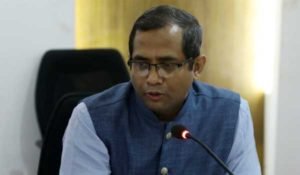Originally posted in The Business Post on 22 May 2022
BUDGET FOR FY23
Supply crisis, inflation, war impacts key challenges

Ensuring smoother supply of products, tackling the impacts of Russia-Ukraine war and LDC graduation will be key challenges for the government in the budget for Fiscal Year 2022-23.
Economists and business leaders made the remarks at a pre-budget discussion titled “Economic Challenge and the Upcoming budget for FY23,” organised by The Business Post at its office auditorium in the capital on Saturday.
 Centre for Policy Dialogue’s (CPD) Research Director Dr Khondaker Golam Moazzem said, “Bangladesh was showing good progress after emerging from the Covid-19 crisis, and business communities were interested in investing.
Centre for Policy Dialogue’s (CPD) Research Director Dr Khondaker Golam Moazzem said, “Bangladesh was showing good progress after emerging from the Covid-19 crisis, and business communities were interested in investing.
“But since then, the supply chain has been disrupted, while expenditure has increased. Due to the Russia-Ukraine war, we are still facing a fuel price hike and supply shortages.”
He continued, “We are facing a challenge with the balance of payment. Bangladesh’s exports have increased, but import expenditure has grown even faster. We can cover the gap with remittance and foreign loans, but there are challenges here too.
“The foreign exchange market will remain volatile for the next few days. The central bank should take logical steps to keep the USD rate stable. The USD price in the kerb market is now higher. If necessary steps are not taken, remittance through the Hundi system will increase.”
The authorities concerned should increase monitoring in the kerb market, he added.
Dr Moazzem continued, “The next budget should have effective steps to tackle the supply shortage of commodities. The crises triggered by inflation are gradually rising. Currently, food inflation in the country has decreased, but non-food inflation has increased.
“How can this happen? The trend to keep inflation around is a wrong move.”
He then said, “Inflation means that in reality, the prices will go up. But now it is a question of whether there are goods available in the markets. The government should take a firmer stance to ensure smooth supply of goods in the market. Duties and taxes can be lowered if necessary.
“The decision to keep interest rates at a fixed level is damaging the loan sector. It is not profitable for banks to disburse loans to the small and medium enterprises (SMEs) at 9 per cent interest rate. This has been discouraging the banks from disbursing loans to SMEs.”
The next budget should include steps centring the interest rates to help support the SME sector.
Dr Moazzem added, “The government should expand the social safety net in the next budget. Especially, the food supply for industry workers should be increased, and aid should be provided to the poor and people with a very limited income.”
Discussing ways to boost employment opportunities, he said, “The government should provide more facilities to the private sector to help create more jobs. Besides, government projects – where there is an opportunity to boost employment – should be prioritised.
“The government should introduce region-based products. The lawmakers will put more pressure on smaller projects ahead of the election, but the main focus should be on projects that can generate employment opportunities.”


